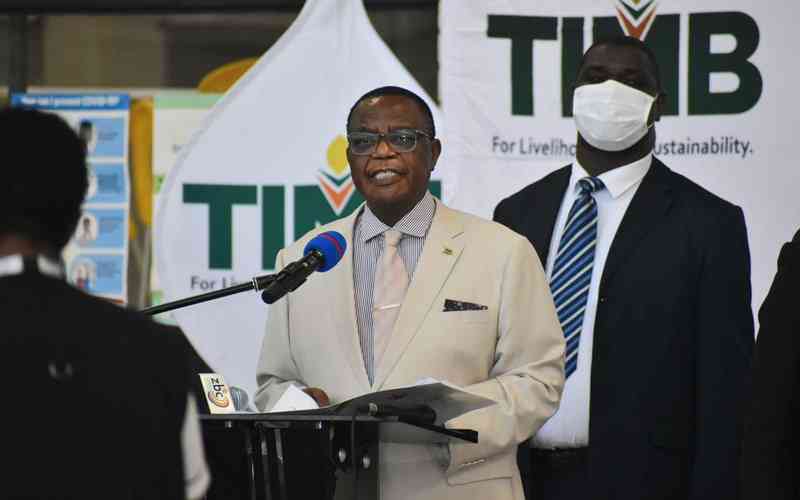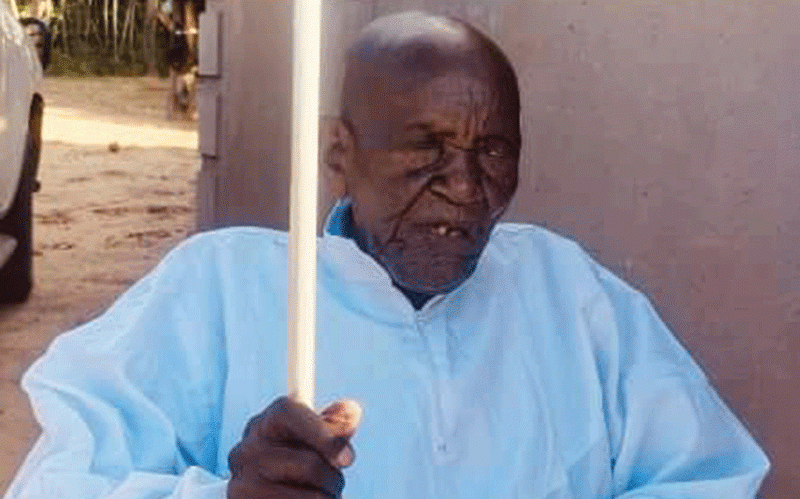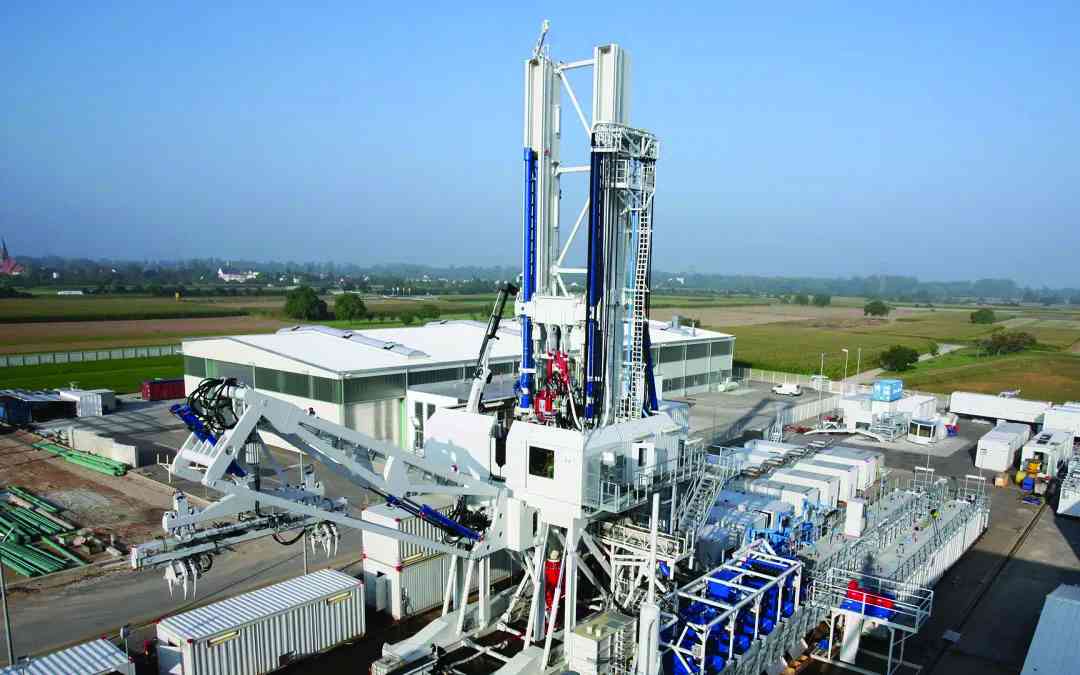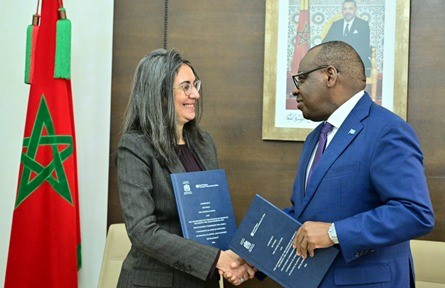
VICE-PRESIDENT Constantino Chiwenga has said Zimbabwe exports 98% of its tobacco in raw form, thus realising a paltry US$1 billion out of a possible US$15 billion that the golden leaf fetches on the global market.
Officiating at the opening of the 2023 tobacco marketing season yesterday, Chiwenga said the southern African country was exporting jobs and value.
Zimbabwe produced 211 million kilogrammes in 2021 and 212 million kilogrammes in 2022.
“Now we aim to increase production from the current 212 million kilogrammes to 300 million kilogrammes annually as stipulated in the government’s Tobacco Value Chain Transformation Plan. The plan also focuses on localising financing for the 150 000 debt-ridden small-scale producers. We can achieve this by injecting seed funds and attending to enablers thereof,” he said.
“Then the next thing we want to do is to ensure that there is more value addition and beneficiation. We export 98% of our tobacco in raw form, therefore, exporting jobs and value.
“Annually, we produce more than 200 million kilogrammes of tobacco and as it crosses the border, the same tobacco fetches US$15 billion on the international market and yet Zimbabwe only gets a billion?”
Chiwenga pleaded with all participants in the value chain to work together to lead the transformation strategy through the Tobacco Industry and Marketing Board (TIMB).
With vertical growth and loss reduction, he advised, they should raise production to at least 2 000 kilogrammes per hectare.
- Big send-off for Cont Mhlanga
- Govt opens ChiTown e-passport centre
- Massive ZRP vehicle theft scam exposed
- Border Timbers targets European markets
Keep Reading
“Value-add from the current 2% of tobacco produced to over 30%. We want more tobacco products produced in Zimbabwe, taking over the international market brands. TIMB has since licensed cigarette maker Cavendish Lloyd to produce and process Shisha tobacco,” he said.
Chiwenga said tobacco processor Cutrag was constructing a plant and that there was so much potential in the tobacco industry that it can anchor the Zimbabwean economy. The sector also possesses many opportunities for growth.
He said agriculture contributed to export earnings and the flagship was tobacco, adding that tobacco production in the country has rebounded significantly since the land reform programme.
Concerns have been raised about growers facing viability challenges as a result of the increased costs of production. To alleviate that, Chiwenga said they spoke to the Reserve Bank of Zimbabwe and consequently increased the retention threshold from 75% to 85%.
This means all tobacco growers who will sell their tobacco at auction or contract floors this season will get 85% of their proceeds in United States dollars and 15% in local currency.
TIMB chairperson Patrick Devenish said the industry, together with the central bank, had jointly put in place improved payment measures to ensure that tobacco growers get full value for their crop and are paid within the shortest possible time.
To enforce this, he said they stood guided by the Contractors Compliance Administration Framework.
“All tobacco merchants and contractors have signed it and have been made aware that they are supposed to pay growers within 48 hours of sales completion. Failure to do so will be met by stiff penalties, suspension, or cancellation of operating licences. Therefore, we encourage tobacco growers to notify TIMB if they are not paid within 48 hours,” he said.
During the 2022/23 tobacco production season, there were 148 527 growers on 117 928 hectares of tobacco as compared to 110 155 hectares of tobacco farmed by 122 841 growers in the prior year.
He said their crop assessment exercise revealed that the country could produce 230 million kilogrammes of the golden leaf this season.
To offtake this tobacco, TIMB has licensed two auction floors and these are Tobacco Sales Floor and Premier Tobacco Auction Floor. The board also licensed 25 “A” Class buyers and 32 contracting companies.
Sales will be conducted in Harare as well as five centres in Karoi, Mvurwi, Bindura, Marondera and Rusape.
“We are aware that some tobacco growers have not been paid since last season. Agreements were made with the responsible tobacco companies and plans are in place to ensure growers are paid in full,” he said.
Devenish said some growers had outstanding debts to contracting companies as well as TIMB for the tobacco inputs credit scheme from the previous seasons.
“We intend to ensure those loans are paid back as well so that all players in the value chain operate profitably,” he said.
Parliamentarians have also called on government and TIMB to ensure that farmers are rewarded adequately for their sweat and money.
Hurungwe East legislator Takundwa Masenda raised the issue as a point of interest in the August House on Tuesday
Masenda also appealed to the Lands ministry to set the lowest selling price for tobacco as there is a fixed producer price which is dependent on the quality of the golden leaf.
“The 2023 tobacco selling season begins on March 8 (yesterday) on auction floors and March 9 contract sales. My concern is that I am reliably informed that the pricing has not changed from what it is the last two decades yet the prices of inputs have gone up regrettably,” he said.
“The prices of inputs have changed from the past 15 years. What it means is that tobacco farmers are currently on the market having incurred huge losses arising from the fact that prices for all the inputs have gone up. Fertilisers, water bills, electricity have gone up; I can name everything, except for the prices at which they sell the tobacco.
“My appeal is that TIMB as the regulatory authority should intervene and ensure that the farmers are rewarded adequately for the effort and costs they incur during production. I also appeal to the Lands minister (Anxious Masuka) to set the lowest pricing which makes tobacco farming viable and sustainable to farmers.”











